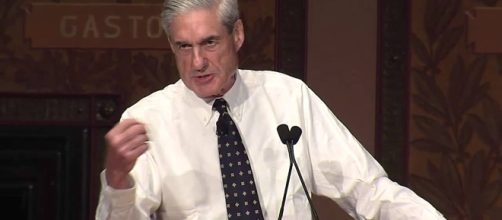To escape the legal consequences of allegedly colluding with Russia to win the 2016 U.S. election, President Donald Trump hit on key investigators of the probe. He began with FBI Director James Comey, recently hit Attorney General Jeff Sessions, and continues to find a way to fire special counsel Robert Mueller.
His focus now is on Mueller, especially after reports came out that the special counsel had crossed the red line and is looking into the real estate billionaire’s finances. Business Insider reported that part of Mueller’s probe is a look into Trump’s income tax returns, which the president continues to refuse to release.
Hiding something sinister
It has been a tradition, as part of efforts to make the office of the president more transparent, that the POTUS and those aspiring for the presidency must release their income tax returns. All American presidents, from Jimmy Carter to Barack Obama did, but not Trump, who initially promised to make his tax returns public after an IRS audit.
Trump is now trying to scare the special counsel by releasing trial balloons that Mueller would go beyond his mandate as special counsel if he includes the president’s finances. Legal experts, however, say otherwise. The financial history and business deals of Trump fall within the scope of Mueller’s investigative power, according to a lawyer involved in the probe who cited that the independent counsel during Bill Clinton’s impeachment in 1998 had that power.
Desperate moves
Trump is desperate to wiggle himself, his campaign team, and family out of the mess they are in – including seeking legal advice on self-pardon. The New York Daily News, in an editorial, challenged Congress to show the executive branch of government it is a co-equal body by rebuking Trump if he would fire Mueller on the ground that the special counsel went beyond his mandate.
It pointed out that not only does Deputy Attorney General Rod Rosenstein has the power to fire Mueller, but if he were to succumb to pressure from Trump – just what the president attempted by picking Jeff Sessions to become the AG – Congress also has the duty to reinstate Mueller. Unfortunately for Trump, Sessions recused himself, which left the billionaire with one less ally in his corner.
The editorial warned Congress that while the president has broad powers to pardon, even if it is legal, it is “an unacceptable tool for the President to use to pry himself out of this particular box.” If the lawmakers, a majority of whom are GOP members and have the power to impeach, would not send Trump strong signals that the presidential pardon is not an acceptable option, then legislators are considered aiding and abetting Trump.
At least one member of Trump’s legal team, Mark Corallo, the spokesman, apparently crossed the line. Business Insider reported that Corallo resigned because he objected to the team’s public criticism of Mueller.


